Japan-in-Asia Cultural Studies (JACS)Program
School of Humanities

Program Overview
 AWARD
AWARD
B.A. with an Extended Major in Cultural Studies
 DURATION
DURATION
4Y
 SCHOOL(S)
SCHOOL(S)
School of Humanities
 Focus of Study
Focus of Study
Cultural Studies, Modern Literature, Cinema, Modern History
Japan in Asia Cultural Studies Program
Program Introduction
The Japan-in-Asia Cultural Studies (JACS) program explores the rich and complex culture and history of Japan and its relations with other East Asian countries. With particular emphasis on cultural history, cinema and visual culture, and literature, the curriculum is designed to help you master critical literacy and communication skills while acquiring a broad perspective on Japanese culture in Asia and specialized knowledge in one or more disciplines. In addition, the graduate program provides opportunities to interact with internationally distinguished scholars from different countries at international conferences, workshops, and other events in Nagoya, around Japan, and across the world. If you’re eager to understand the world better and want to make a positive impact, JACS could be a great fit for you.
Course Highlights
The Japan-in-Asia Cultural Studies (JACS) program offers a dynamic curriculum that goes beyond just learning about culture—it helps you understand the forces that shape it. You’ll begin with foundational courses in history, literature, cinema, and media, all approached from a cultural theory perspective. As you progress, you’ll delve into more specialized areas that build on this foundation. Throughout the program, you’ll develop essential academic skills like critical thinking, analytical reading, and effective communication, while deepening your expertise in key topics that drive cultural dynamics. In your final year, you’ll conduct original research, culminating in a thesis that showcases your mastery of the subject. One of the most distinctive aspects of JACS is our close-knit community. With a small program size and an excellent student-to-professor ratio, you will benefit from meaningful interactions with both your peers and professors. This intimate setting fosters a supportive and collaborative environment, enhancing your learning experience and academic growth. We are dedicated to supporting your intellectual and personal development, helping you prepare to make a positive impact on the world. If you would like to be a part of the JACS family, we encourage you to apply!
Why Nagoya University’s G30 Japan in Asia Cultural Studies Program?
- A close-knit community, with a small class size and an excellent professor-student ratio, benefiting students from meaningful interactions with peers and professors.
- A strong focus on modern and contemporary “Japan-in-Asia,” with “modern” meaning anything after the Meiji Restoration of 1868.
Curriculum
1styear
Japanese Language, Liberal Arts & Basic Courses
Take foundational courses to ease into life at Nagoya University:
- Introduction to Research Methods for Culture and History
- Introduction to Thesis Writing
2ndyear
Basic Specialized Courses
Start building foundations in humanities subjects by taking the following basic courses:
- Introduction to Cultural Theory
- Introduction to Film History
- Japanese Culture and Communication
- Introduction to Modern Japanese History
- Introduction to Modern Japanese Literature
3rdyear
Specialized Courses & Laboratories
Start deciding on your specialization through specialized elective courses:
- Classical Japanese Literature
- Classical Film Theory
- Asian Film History before/after 1945
- Modern Japanese Culture and Asia
- Japanese Literature and Translation
- Other specialized elective courses
- New Perspectives on Modern Japanese History
4thyear
Research and Thesis
Complete your research on your chosen specialization/field:
- Undergraduate Seminar I/II
- Graduation Research & Thesis
* Note: This curriculum outline serves to show a snapshot of what the program has to offer and does not list all graduation requirements. Please refer to the program’s Graduation Requirements found on the admissions website.
Related Links
How to Apply
The Japan-in-Asia Cultural Studies Program is open for applications every year in November-December. Note, that the program is not available during the 2nd round of G30 applications in January. Please click on the "How to Apply" icon above to view the full application instructions.
The Japan-in-Asia Cultural Studies Program conducts a holistic review of all application materials and places strong emphasis on well-written essays that demonstrate the applicant’s own critical thinking skills.
Detailed eligibility criteria and application requirements are provided in the Application Guidelines available on the How to Apply page.
Student Voice
2nd Year Vietnam
What sparked your interest in the G30 JACS program?
I became interested in the program due to its interesting curriculum, with the main focus on film, history and literature. I think it was rather a unique path towards understanding social science and humanities topics in a more interdisciplinary way, that is why I was drawn to the program. I chose Japan because there were a great number of scholarships available and it was a chance to learn a third language. I have always been fascinated with Japan’s culture, food and nature so it was a good chance to study and travel.

What do you do in your spare time?
In my spare time, I enjoy going to the gym, do dance practices with N30N - G30 International Dance Team, or. sit on the grass in front of Toyoda Auditorium to relax (probably in the fall/spring time mostly).


Career Path
Your Future Career
Approximately one-third of our graduates pursue postgraduate study at prestigious universities across Japan and around the world. We offer extensive support during the application process, which leads to a very high acceptance rate into their top-choice programs. For those entering the workforce, many JACS graduates find opportunities in Japan. Our alumni have secured positions in the Japanese tourism industry, international sectors of Japanese government offices, trading and manufacturing companies, banks, and language schools. Additionally, several of our master’s program graduates have ventured into journalism or roles within arts and cultural organizations. Overall, employment prospects are strong both in Japan and internationally, with most graduates securing their first jobs before completing their studies.
Examples of Career Paths
Academia
- Nagoya University
- Graduate school in overseas
Employment
- Graduates are working in culture and media industries such as Tourism and Journalism. Some are working in government offices.



